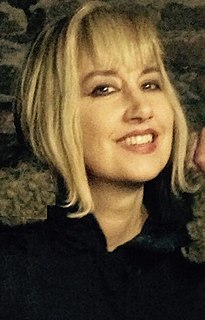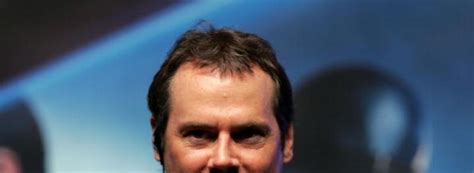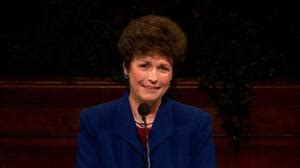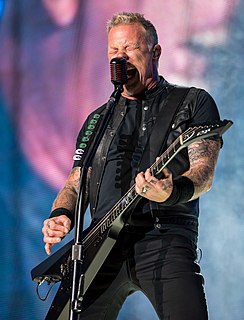A Quote by Celeste Ng
In my own work, when I start off writing a scene, I don't know which physical details are going to turn out to be meaningful. But, inevitably, certain images will stand out - you start to decide which ones are important as you go.
Related Quotes
I think any start has to be a false start because really there’s no way to start. You just have to force yourself to sit down and turn off the quality censor. And you have to keep the censor off, or you start second-guessing every other sentence. Sometimes the suspicion of a possible false start comes through, and you have to suppress it to keep writing. But it gets more persistent. And the moment you know it’s really a false start is when you start … it’s hard to put into words.
Learn a lot about the world and finish things, even if it is just a short story. Finish it before you start something else. Finish it before you start rewriting it. That's really important.
It's to find out if you're going to be a writer or not, because that's one of the most important lessons.
Most, maybe 90% of people, will start writing and never finish what they started. If you want to be a writer that's the hardest and most important lesson: Finish it. Then go back to fix it.
Drop Out--detach yourself from the external social drama which is as dehydrated and ersatz as TV. Turn On--find a sacrament which returns you to the temple of God, your own body. Go out of your mind. Get high. Tune In--be reborn. Drop back in to express it. Start a new sequence of behavior that reflects your vision.
I know a lot of bands that will make their first record and get to a certain level, and then when the second record comes out, they can start where they left off as a headlining act playing in front of a certain number of people, or they can go back out and make a lot less money and open for people. I feel like if you go out and just go right back into that headlining stuff, you're playing to the converted.
The time is here for you to stand up for what you know is right. You must judge right from wrong. No longer can you be complacent or go with the flow or wonder what to do. You must decide now which path you will follow and which answer you will give. Decide well in advance, before the pressure is on, what you stand for.
I know a lot of bands that will make their first record and get to a certain level, and then when the second record comes out, they can start where they left off as a headlining act playing in front of a certain number of people, or they can go back out and make a lot less money and open for people.
When I am writing I don't set a certain number of pages. I do know that the further into a script I get the faster it goes. As soon as you start making decisions you start cutting off all of the other possibilities of things that could happen. So with every decision that you make you are removing a whole bunch of other possibilities of where that story can go or what that character can do. So when I get maybe 2/3's of the way through I can see very clearly where it is going to go.
Yes, I am one of those people who feels that most of my work is adaptation of one sort or another. For me, it's a way to jump-start the engine. For example, some people use the technique of basing a character on a friend. They start writing with his or her voice, then at a certain point, the character takes off on his or her own. It probably no longer resembles the model, but it helped the author to get going. I find that's true of form, too. For every play I've written, I know what play I was trying to imitate. That helps me get going.






































